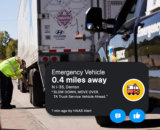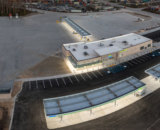If you are an avid news and information reader like I am, you certainly have read on numerous occasions about the rise of the driverless car. One of the best articles I have read recently came from The Economist.
According to the article, “Nobody is sure when it will arrive. Google, which is testing a fleet of autonomous cars, thinks in maybe a decade, others reckon longer. A report from KPMG and the Centre for Automotive Research in Michigan concludes that it will come “sooner than you think”. And, when it does, the self-driving car, like the ordinary kind, could bring profound change."
When mass-produced cars first appeared, they had an impact on the whole of society. What might be the equivalent social implications of driverless cars?
According to the article, “Electronics and software firms will be among the winners: besides providing all the sensors and computing power that self-driving cars will need, they will enjoy strong demand for in-car entertainment systems, since cars’ occupants will no longer need to keep their eyes on the road. Bus companies might run convoys of self-piloting coaches down the motorways, providing competition for intercity railways. Travelling salesmen might prefer to journey from city to city overnight in driverless Winnebago’s packed with creature comforts. So, indeed, might some tourists. If so, they will need fewer hotel rooms. Cabbies, lorry drivers and all others whose job is to steer a vehicle will have to find other work.” Ever wonder why you never quite sell as many headphones as the local store in town that has 2/3 less the customer counts then you do? Certainly, it is because drivers are not purchasing them or using them as they drive down the road.
We may laugh at this future opportunity, but if we miss the message then in the end we will not be laughing. The message is that you must understand who your customer is today and who they might be tomorrow. Think about it:
- What would a driverless car do to your operation?
- How would it change your current customers buying habits?
- Would it move your current customer and future customer to a shopper rather than a buyer?
- Would items in your store that are difficult to eat and or use while driving all of a sudden become more practical?
While we have our future technology hat on, let’s think about this concept recently shared with me by Jason Finch, co-founder of Port 80 Retail Tech, “Every gas station here in the UK reads the license plates of vehicles as they approach the pumps and many won't start pumping fuel until the plate has been recognized. Imagine if there was a customer profile linked to the vehicle that could show a specific promotion or display on the fuel pump topper that changed individually for each person? They could even cycle through a few different alternative promotions, or indeed giving very specific messages: "Welcome back, Darren, your favorite lunch treat is on offer in our Wheat Montana Farms Bakery for the next 30 minutes!"
The bottom line of both these thought exercises is something I preach on frequently—the importance of understanding who your customer REALLY is. Are you just promoting soda because your vendor tells you to or because the competition across the street is? Are you running the same promotions every month, ever season, every weekend even though the customers coming into your operation during these times are different and may be shoppers versus buyers, or vice versa? Again, be sure you understand who your customer is today and who they might be tomorrow.
Subscribe to Updates
NATSO provides a breadth of information created to strengthen travel plazas’ ability to meet the needs of the travelling public in an age of disruption. This includes knowledge filled blog posts, articles and publications. If you would like to receive a digest of blog post and articles directly in your inbox, please provide your name, email and the frequency of the updates you want to receive the email digest.


